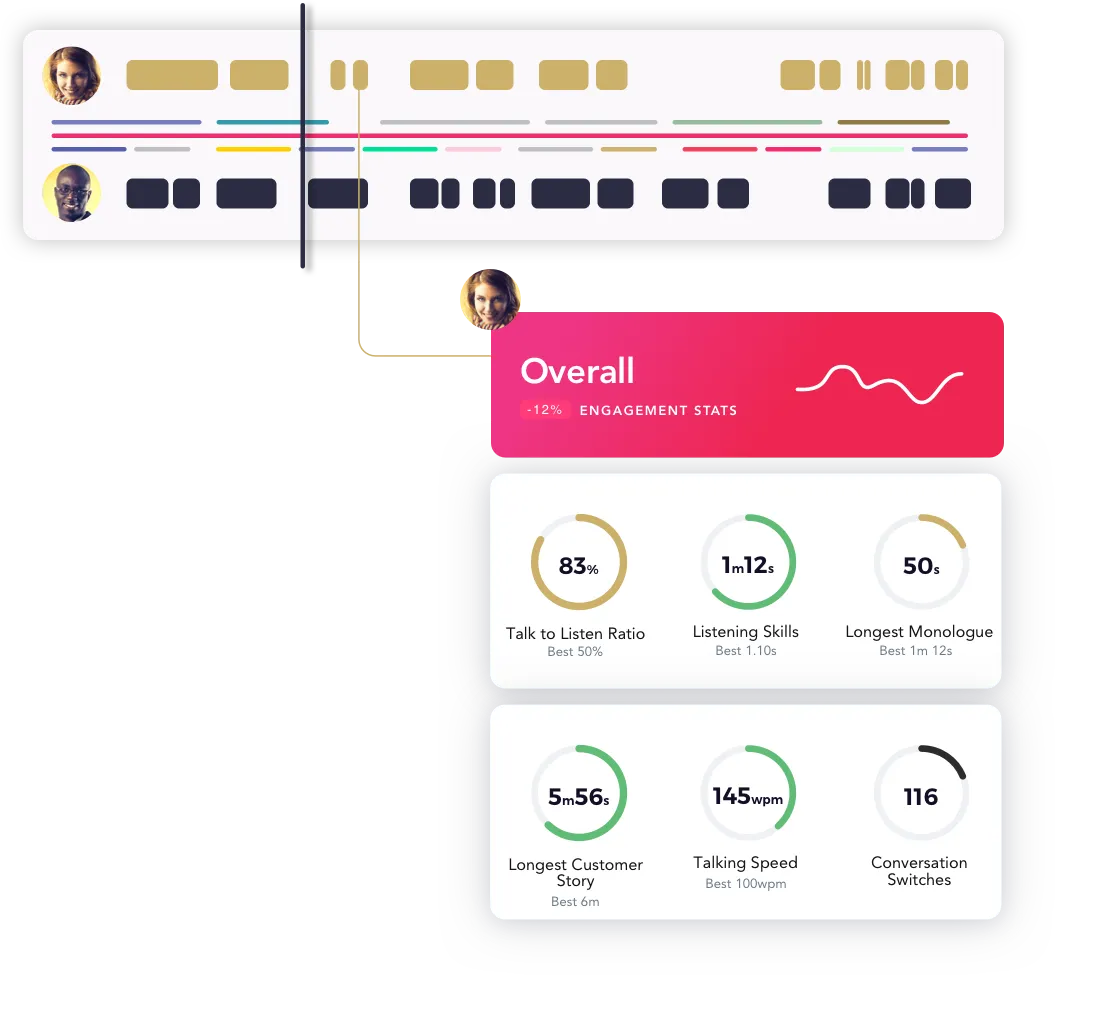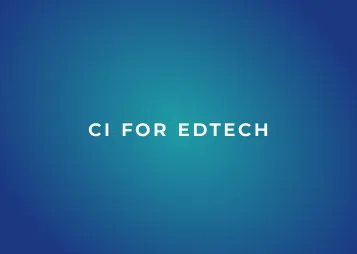Edtech revenue teams face unique challenges.
From navigating complex sales cycles to understanding the diverse needs of educators and students, success hinges on effective communication and a deep understanding of the customer's perspective.
Add to that the evolving needs of students and learners and changing behaviors and technologies, it's a minefield out there for revenue-generation teams in edtech.
Many new technologies are often leveraged by edtech organizations, the most recent player in the game being: conversation intelligence.
What is conversation intelligence?
Conversation intelligence (CI) is a cutting-edge technology that leverages AI and machine learning to analyze and extract valuable insights from recorded conversations, such as sales calls, customer success interactions, and virtual meetings.
By transcribing and analyzing these conversations, conversation intelligence tools produce a wealth of data and visibility, including sentiment analysis, sales rep performance, competitor mentions and topic detection.

The edtech challenge: Upskilling and coaching sales teams
Edtech sales teams often find themselves navigating intricate educational ecosystems, each with its own set of stakeholders, budgets, and decision-making processes. Equipping these teams with the right skills and knowledge is crucial for success, and CI can play a pivotal role in this mission.
By analyzing recorded sales calls, CI tools can identify areas for improvement, such as:
- objection handling
- product positioning
- reps' closing techniques
Sales managers can use these insights to tailor coaching sessions and create targeted development programs for their reps. This ensures their teams are equipped with the necessary skills to effectively communicate the value proposition of their edtech solution and maximizes that precious coaching time.
Edtech products and services often cater to diverse educational settings, from K-12 to higher education, and into the realms of corporate training. CI enables sales teams to learn from successful calls and share best practices across different segments, fostering a collaborative learning environment and accelerating the onboarding process for new hires. High performance becomes a replicable asset in the team, providing competitive advantage in fierce markets.
Visibility into sales call data
For edtech revenue teams, gaining visibility into sales call data is crucial for making informed decisions and optimizing strategies. CI provides a comprehensive view of these interactions, empowering teams with analytics on the metrics that matter to them.
CI tools offer detailed metrics and analytics on sales calls, such as:
- talk-to-listen ratios
- conversational pace
- adherence to sales playbooks and frameworks
This data can help identify areas for improvement, track individual and team performance, and refine sales strategies accordingly.
By analyzing the content of sales conversations with topic and keyword tracking, CI tools can identify the most commonly discussed areas, objections, and questions. This information can be used to refine product positioning, develop targeted collateral, and ensure sales teams are prepared to address common concerns effectively.
Understanding the emotional tone and sentiment of sales conversations can provide valuable insights into customer perceptions and engagement levels. CI tools can detect positive, negative, or neutral sentiments, allowing sales teams to identify potential roadblocks or areas of concern and respond proactively.

Access to the customer voice: Driving continuous improvement
One of the most significant advantages of CI for edtech revenue teams is the ability to access the authentic voice of the customer.
Understanding the unique challenges, pain points, and language used by educators, administrators, and students is paramount for effective communication. CI tools can identify common themes, concerns, and questions raised during sales conversations, allowing sales teams to better align their messaging and approach to resonate with their target audience.
Conversations with customers also often reveal valuable insights into product features, usability, and areas for improvement. These insights are valuable not just to your sales team, but CS, marketing and product too, guiding future product and service development. CI tools can identify recurring themes and pain points for example, enabling product teams to prioritize enhancements and align their roadmaps with customer needs.
By analyzing customer interactions across various touchpoints, such as sales, support, and onboarding, edtech companies can identify potential friction points and opportunities to streamline processes. These insights can inform customer experience strategies and drive continuous improvement efforts.
With regard to market and competitive intel, customers may discuss their experiences with competing edtech solutions during sales conversations. In this case, your CI tool can capture these insights, providing valuable competitive intelligence and informing product positioning and differentiation strategies.
Embracing conversation intelligence in edtech
As edtech continues to revolutionize the way we learn and teach, revenue teams must adapt and leverage the power of emerging technologies. Conversation intelligence presents a transformative opportunity to upskill sales teams, gain invaluable insights, and foster a customer-centric approach - a route many edtechs are already taking.
By implementing conversation intelligence solutions, edtech companies can empower their revenue teams with the tools and knowledge necessary to navigate the complex educational landscape, build stronger relationships with customers, and drive sustainable growth.
In an industry where effective communication and understanding are paramount, conversation intelligence is no longer a ‘nice to have’.
This essential business tool offers a competitive edge, enabling edtech revenue teams to unlock the true potential of their sales conversations and deliver exceptional value to their customers.
Want to find out more? Here’s 8 ways conversation intelligence AI is helping sales teams in 2024.





.webp)






